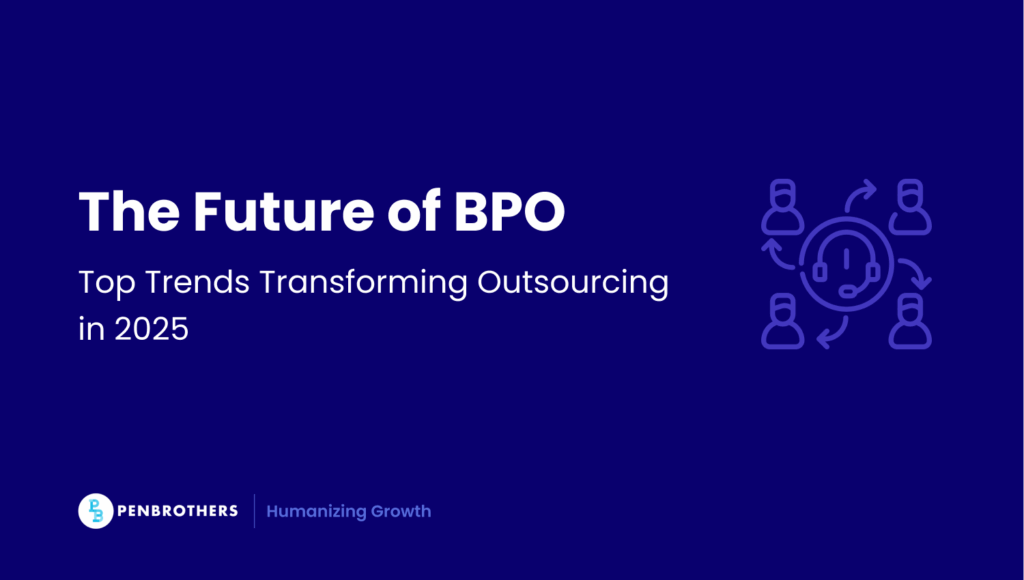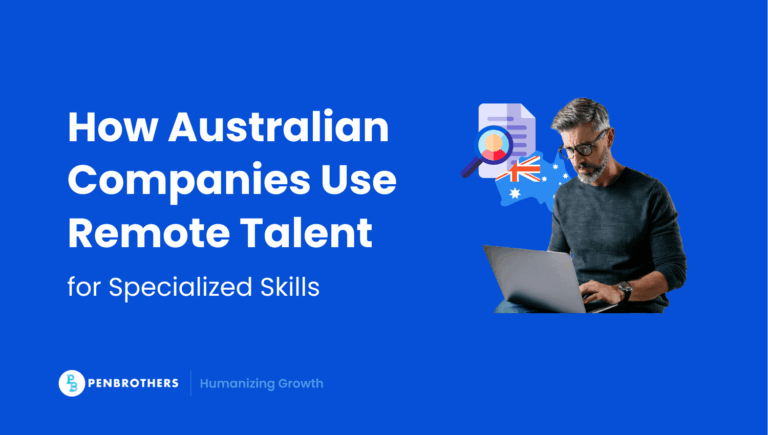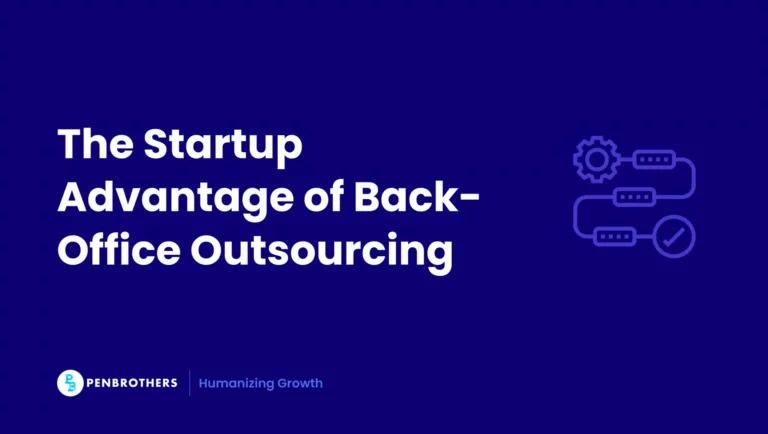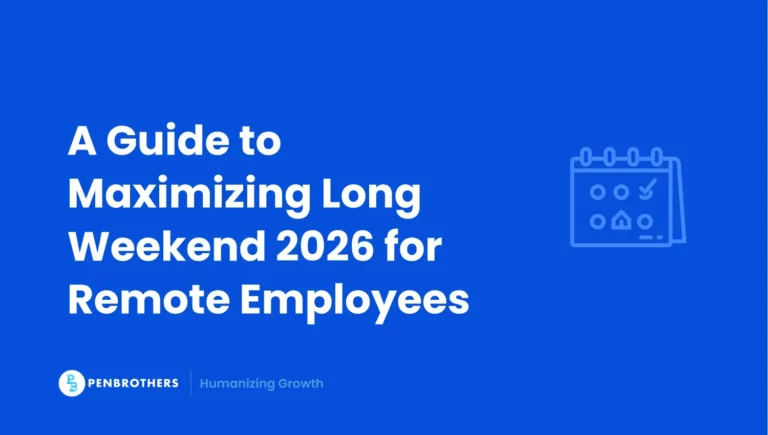The Business Process Outsourcing (BPO) industry is undergoing a significant transformation. Once viewed primarily as a cost-saving measure, BPO now plays a pivotal role in driving business growth and innovation. Technological advancements, evolving work models, and heightened security concerns are redefining outsourcing strategies. Key themes such as AI automation, cloud computing, sustainability, and specialized services are at the forefront of this evolution.
Key Takeaways
- A Shift from Cost-Cutting to Strategic Partnership: The most significant trend in the BPO industry is the evolution from transactional, cost-focused relationships to long-term, strategic partnerships. Companies now seek BPO providers who can contribute to innovation, process improvement, and overall business growth.
- Technology is Driving the Transformation: Artificial Intelligence (AI), automation, and cloud computing are the core technological forces reshaping BPO. AI is being integrated to enhance efficiency and personalize customer experiences, while the cloud provides the essential scalability and flexibility for modern operations.
- Demand is Growing for Specialized, High-Value Services: The scope of BPO has expanded far beyond traditional back-office tasks. There is a rapidly rising demand for specialized, value-added services, including software development, cybersecurity, business analytics, and strategic human resources management.
- Security and Sustainability are Now Critical Priorities: In 2025, the selection of a BPO partner is no longer just about performance and price. Data privacy and security, in response to increasing cyber threats and regulations like GDPR, have become paramount. Similarly, a provider’s commitment to sustainability and ESG (Environmental, Social, and Governance) principles is an increasingly important factor.
1. AI and Machine Learning Automation
Artificial Intelligence (AI) and Machine Learning (ML) are revolutionizing BPO operations. Among the executives surveyed by Deloitte, 83% are incorporating AI into their outsourced services, while 20% are actively creating strategies to oversee and manage AI-driven digital workers.
This integration enhances efficiency by automating repetitive tasks, leading to cost reductions and improved accuracy. Predictive analytics enable proactive decision-making and personalized customer interactions. AI-powered chatbots and virtual assistants are transforming customer service by reducing wait times and optimizing workforce allocation.
2. Remote and Hybrid Work Models
The global shift towards remote and hybrid work models has redefined talent acquisition and management. Organizations are now accessing a broader talent pool, unrestricted by geographic boundaries.
This transition not only reduces infrastructure costs but also promotes flexibility and enhances employee productivity. Virtual collaboration tools have become essential in managing dispersed teams, ensuring seamless communication and project execution. Learn more about the rise of hybrid outsourced teams for global reach here.
3. Virtual Customer Experience Enhancement
Digital transformation is accelerating the demand for enhanced virtual customer experiences. Companies are increasingly adopting AI-powered customer support solutions, such as:
- Chatbots
- Self-service portals
Omnichannel communication strategies—integrating voice, chat, and social media—improve accessibility and responsiveness. AI-driven sentiment analysis allows businesses to anticipate customer needs and refine service quality.
4. Data Privacy, Security, and Compliance
With the rise in cybersecurity threats and stringent regulations like GDPR and CCPA, data privacy and security have become paramount in outsourcing. Businesses are investing heavily in cloud security, end-to-end encryption, and AI-driven threat detection.
A Deloitte report indicates that approximately 83% of companies rely on existing service providers for AI and GenAI capabilities to deliver services, embedding AI-specific clauses in outsourcing contracts to ensure compliance and mitigate risks.
5. Sustainable and ESG-Centric BPO Practices
Sustainability and Environmental, Social, and Governance (ESG) considerations are increasingly influencing outsourcing decisions. Companies are seeking eco-friendly BPO partners committed to reducing carbon footprints through energy-efficient operations and digital transformation.
Cloud-based infrastructures not only enhance operational efficiency but also contribute to sustainability efforts by minimizing hardware dependence. Aligning with BPO providers that prioritize ESG principles offers a competitive advantage in today’s conscientious market. Learn more about sustainable and ethical outsourcing here.
6. Rise of Specialized and Value-Added Services
The BPO landscape is shifting from traditional cost-cutting models to offering specialized, value-added services. Providers now deliver expertise in areas such as:
- Software development
- Cybersecurity
- Business Analytics
Businesses are increasingly favoring outsourcing partners that offer consulting and strategic advisory roles, driving innovation and growth. The demand for niche services, including AI development, blockchain technology, and digital marketing, continues to rise.
7. Cloud Computing and Digital Infrastructure
Cloud computing is a cornerstone of modern BPO services, offering scalability, flexibility, and enhanced data accessibility. According to Deloitte’s Global Outsourcing Survey 2024, 67% of organizations are adopting outcome-based outsourcing relationships, leveraging cloud-based solutions to achieve desired results.
This approach reduces operational costs, centralizes data management, and improves disaster recovery capabilities. The adoption of cloud-native BPO operations facilitates seamless integration with global business processes.
8. Strategic Partnerships Over Cost-Saving Focus
Organizations are transitioning from transactional outsourcing to strategic, long-term partnerships. BPO firms are now expected to contribute to innovation, process improvement, and digital transformation initiatives.
Outcome-based contracts are gaining traction, with a significant number of companies moving away from traditional Full-Time Equivalent (FTE) models, reflecting a focus on value-driven collaborations. Research by WNS indicates that the prevalence of transaction-based and outcome-based pricing models is about 10-15% and 5%, respectively, with expectations for growth in adoption.
9. HR and Workforce Outsourcing Evolution
Human Resources (HR) outsourcing is expanding beyond payroll and recruitment to encompass employee engagement, training, and performance management. AI-driven talent acquisition strategies are optimizing hiring processes, enabling companies to scale their global workforce efficiently.
Businesses are increasingly relying on BPO providers for HR analytics, compliance management, and strategic workforce planning.
10. Quality-Driven Outsourcing and KPI Transparency
Emphasis on quality and transparency in outsourcing engagements is intensifying. Companies are prioritizing well-defined performance metrics, including Key Performance Indicators (KPIs) and Service Level Agreements (SLAs), to ensure high-quality service delivery.
This focus on quality enhances customer satisfaction, operational efficiency, and market competitiveness.
Conclusion
The BPO industry in 2025 is characterized by innovation, strategic value, and a commitment to quality. Businesses aiming to maintain a competitive edge must align with outsourcing partners that embrace advanced technologies, prioritize data security, and adhere to ESG principles.
Success in this evolving landscape hinges on forming strategic partnerships, adopting cutting-edge solutions, and continuously optimizing business processes.
Frequently Asked Questions
The biggest change is the shift from a purely transactional, cost-focused model to one that is based on strategic partnerships. Companies are now looking for BPO providers to act as consultants who contribute to innovation and help achieve business goals, rather than just as vendors who perform tasks at a low cost.
AI and machine learning are being used to automate repetitive tasks, which improves both efficiency and accuracy. They are also enabling more advanced capabilities, such as using predictive analytics for smarter decision-making and deploying AI-powered chatbots to enhance the virtual customer experience.
BPO providers have moved far beyond basic administrative support. They now offer a range of specialized, high-value services, including software development, cybersecurity, business analytics, digital marketing, and strategic HR functions like employee engagement and performance management.
With the global rise in cybersecurity threats and the implementation of strict data privacy regulations like GDPR and CCPA, ensuring the security of company and customer data has become a top priority. A BPO partner’s ability to protect sensitive data and maintain legal compliance is now a critical factor in the selection process.
An “outcome-based” model is a type of strategic partnership where the BPO provider’s compensation is tied to achieving specific, pre-defined business results and outcomes. This is different from traditional models that are based on the number of hours worked or employees assigned (FTEs), as it directly aligns the provider’s goals with the client’s success.






